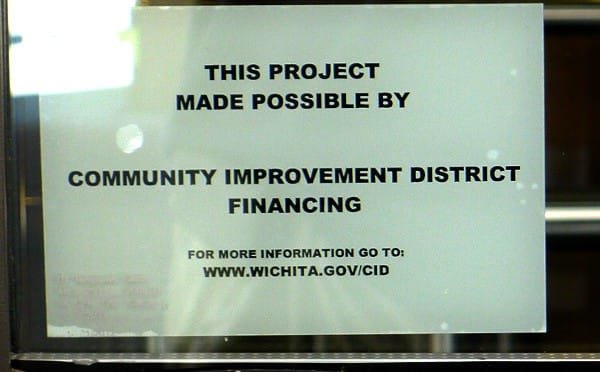Tag: Government transparency
-

Wichita City Council fails to support informing the taxed
What does it say about Wichita’s economic development strategy that if you fully inform citizens and visitors, it renders a tool useless?
-
Could lower open records fees threaten Kansans’ safety?
Opponents of a bill targeted at reducing the cost of acquiring public documents say it will eliminate a necessary revenue stream for many Kansas government entities.
-

During Sunshine Week, here are a few things Wichita could do
The City of Wichita says it values open and transparent government, but the city could improve several areas of providing information and records to citizens.
-
Kansas Open Records Act reform possible
A committee of the Kansas house of Representatives will consider a bill that would make small but welcome reforms to the Kansas Open Records Act.
-
In Wichita, citizens want more transparency in city government
In a videographed meeting that is part of a comprehensive planning process, Wichitans openly question the process, repeatedly asking for an end to cronyism and secrecy at city hall.
-

WichitaLiberty.TV February 23, 2014
There are efforts to have the Kansas Legislature expand the open records law to include the spending records of several taxpayer-funded agencies, but the City of Wichita wants to keep the records secret. Then, did you know the Kansas teachers union has a media response team? Finally, Arthur Brooks makes the moral case for free…
-

Kansas Open Records Act and the ‘public agency’ definition
Despite the City of Wichita’s support for government transparency, citizens have to ask the legislature to add new law forcing the city and its agencies to comply with the Kansas Open Records Act.
-

Open Records in Kansas
Kansas has a weak open records law. Wichita doesn’t want to follow the law, as weak as it is.
-

What type of watchdog are you?
To help citizens become government watchdogs, the Franklin Center for Government and Public Integrity is providing a new resource. It’s the Watchdog Quiz, and it will help you discover what type of role you will want to fill as a government watchdog.
-
Voice for Liberty Radio: Kansas legislative reforms
Kansas Representative John Rubin proposes two reforms to legislative procedure that, I believe, would improve the process.
-
Transparency groups want to know where Wichita tax money is going to promote Wichita
Public or private? GoWichita, Wichita Downtown Development Corporation and the Greater Wichita Economic Development Coalition get more than three million dollars a year. Some of that is taxpayer money.
-
WichitaLiberty.TV January 19, 2014
In this episode of WichitaLiberty.TV: How much would you pay to visit the Wichita Art Museum? You might be surprised to learn how much each visit really costs. Then: A transparency agenda for Wichita city government and the Kansas Legislature. Finally, a look at public schools wasting money.